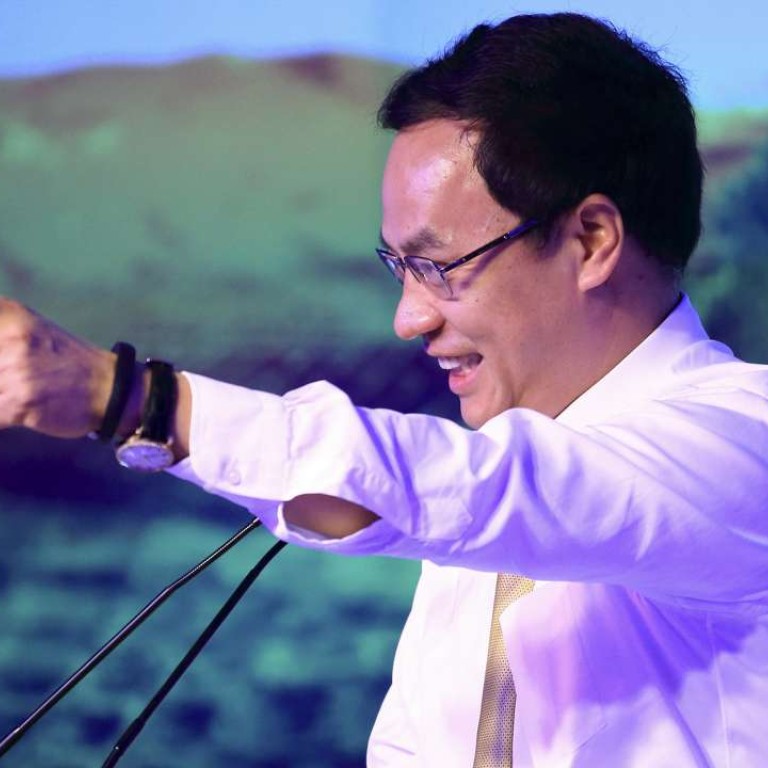
Billionaire Li Hejun struggles to maintain his empire
As an outspoken entrepreneur who once sued a powerful national authority, billionaire Li Hejun dislikes compromise.
But he stepped down Friday as chairman and executive director of Hanergy Thin Film Power Group (HTFP), the company he founded and listed in Hong Kong, almost one year after Hong Kong securities authorities launched an investigation into the company and ordered its shares suspended.
“Li resigned for the reason of strengthening corporate governance”, said a filing by HTFP to the Hong Kong stock exchange late Friday.
On May 20, 2015, shares of the HTFP plunged 47 per cent in the course of a few minutes before trading was halted at the company’s request.
Market rumours swirled after the unusual stock price swing, some claiming Li had been manipulating share prices.
A week later on May 28, Li told Xinhua there was no truth to claims the solar technology company was under investigation, adding that any such talk was “purely a rumour”.
However, several hours later, the Hong Kong Securities and Futures Commission (SFC) issued a statement, confirming its investigation into the listed HTFP “has been active and is continuing”.
Two months later on July 15, the SFC requested a mandatary trading suspension for HTFP, without saying why.

The trading suspension is still in effect.
Last December, Li agreed to sell HK$537 million worth of the firm’s shares at a 94.5 per cent discount.
After the deal, Li own 66.3 per cent of the HTFP, from 72.5 per cent earlier.
Li started business as early as 1988, when he graduated from university. Within 6 years, he made more than 70 million yuan (HK$83.02 million) by trading electronic products and toys. He started with several partners funding of 50,000 yuan, borrowed from his tutor, mainland media reported earlier.
The budding millionaire then entered the merger and acquisition business in the nation’s thriving hydropower business.
Li gained national fame in 2002, when he sued the National Development and Reform Commission (NDRC), the nation’s top economic planning body. The latter had blocked a deal initiated by Li to take over a hydropower station on the Jinsha River, with installed capacity of three million kilowatt. Li’s company won the dispute.
Li opened a thin-film manufacturing unit in 2011. He later took control of the Hong Kong-listed Apollo Solar Energy Technologies Holdings through a stake purchase and eventually renamed the listed unit as “Hanergy Thin Film Power Group” (HTFP) in 2014.
Thanks to multi-year agreements by its parent -- Hanergy Holding Group, to buy US$8.5 billion worth of solar panels production lines from it, HTFP booked handsome profit growth for several years.
Despite HTFP’s small market share, compared to the more-common solar panels based on crystalline silicon technology, its stock price more than quadrupled in the seven months to May 2015, briefly making Li the richest man for China, with 160 billion yuan as his personal wealth, according to Hurun Rankings, a Forbe-style wealth ranking research institution.
HTFP’s market valuation was once six times that of US-based First Solar, widely considered the global leader in the thin-film solar panel sector.
Earlier this year in its annual report, HTFP reported an annual loss of HK$12.23 billion, its first since 2009, as revenue plunged due to the termination of the bulk of the connected transactions with its parent company.
Auditors expressed doubts about its ability to stay in business.
To raise funds for his company’s solar business, Li has been relying on personal loans from trust companies in China’s informal “shadow banking” sector against revenue from parent company Hanergy Holding Group’s hydropower business, according to Chinese data provider Wind Information Co.
Li is still chairman of the parent company currently.
“Li’s resignation does not help to alleviate the difficulties facing Hanergy. The obvious problem is the application of thin film solar technology -- it is losing market shares to panel makers. It seems Li is still facing great pressure,” said a Beijing based solar analyst.

